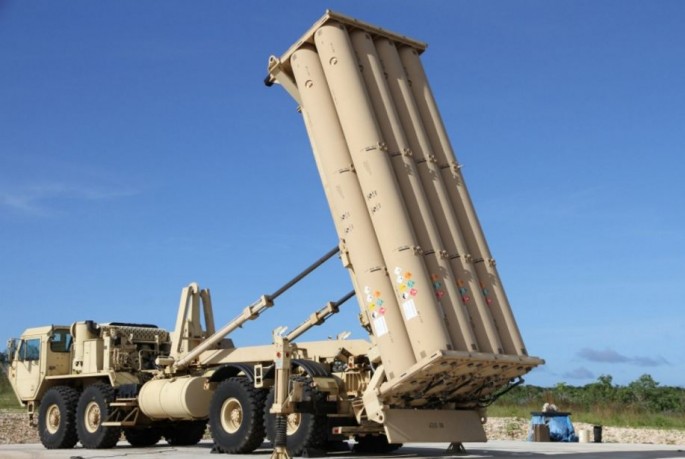China has launched another forlorn attempt to get South Korea to rescind its decision to deploy the U.S. THAAD missile defense system on its soil in May.
In its newest challenge, China said it would like to cooperate with South Korea "based on the mutual respect of security interests."
This olive branch came after China suspended military exchanges between the two countries due to South Korea's deployment of THAAD or the Terminal High Altitude Area Defense system.
China unilaterally cancelled at least seven joint military events with South Korea since Seoul agreed to deploy THAAD in August 2016.
China's Ministry of Defense said "China treats cooperation with South Korea seriously, and would like to cooperate with South Korea based on the mutual respect of security interests."
"All official interactions between the South Korean and Chinese militaries came to a halt in the latter half of last year.
"This comes even after the two countries signed an agreement in 2011 to step up bilateral military cooperation, as well as a 2015 agreement to establish a hotline between the defense ministers."
There is no hope the South Korean government will change its mind about pushing ahead with THAAD's deployment. In fact, the South Koreans want to accelerate the process.
South Korea's determination to emplace THAAD as its primary means of defense against North Korean ballistic missiles was underscored in December 2016 when acting South Korean President and Prime Minister Hwang Kyo-ahn said THAAD has to be deployed to South Korea as soon as possible to counter North Korea's persistent nuclear and missile threats.
"For security, (we) have to deploy (THAAD)," said Hwang.
"As we cannot wait even for a moment to cope with North Korea's nuclear provocations, we have to do what we can do first."
On the other hand, the Chinese defense ministry explained that "China's opposition to THAAD remains, and we hope South Korea values the cooperation between both armies and makes the right decision for regional peace and stability, and provides conditions for further cooperation between the two armies."





















